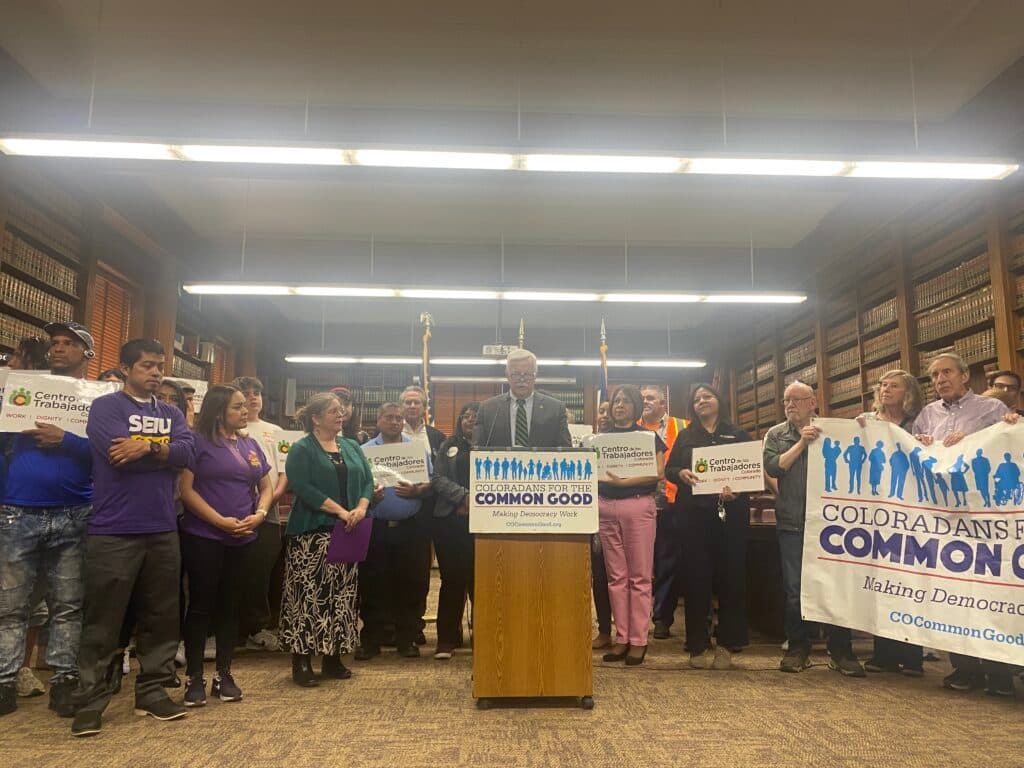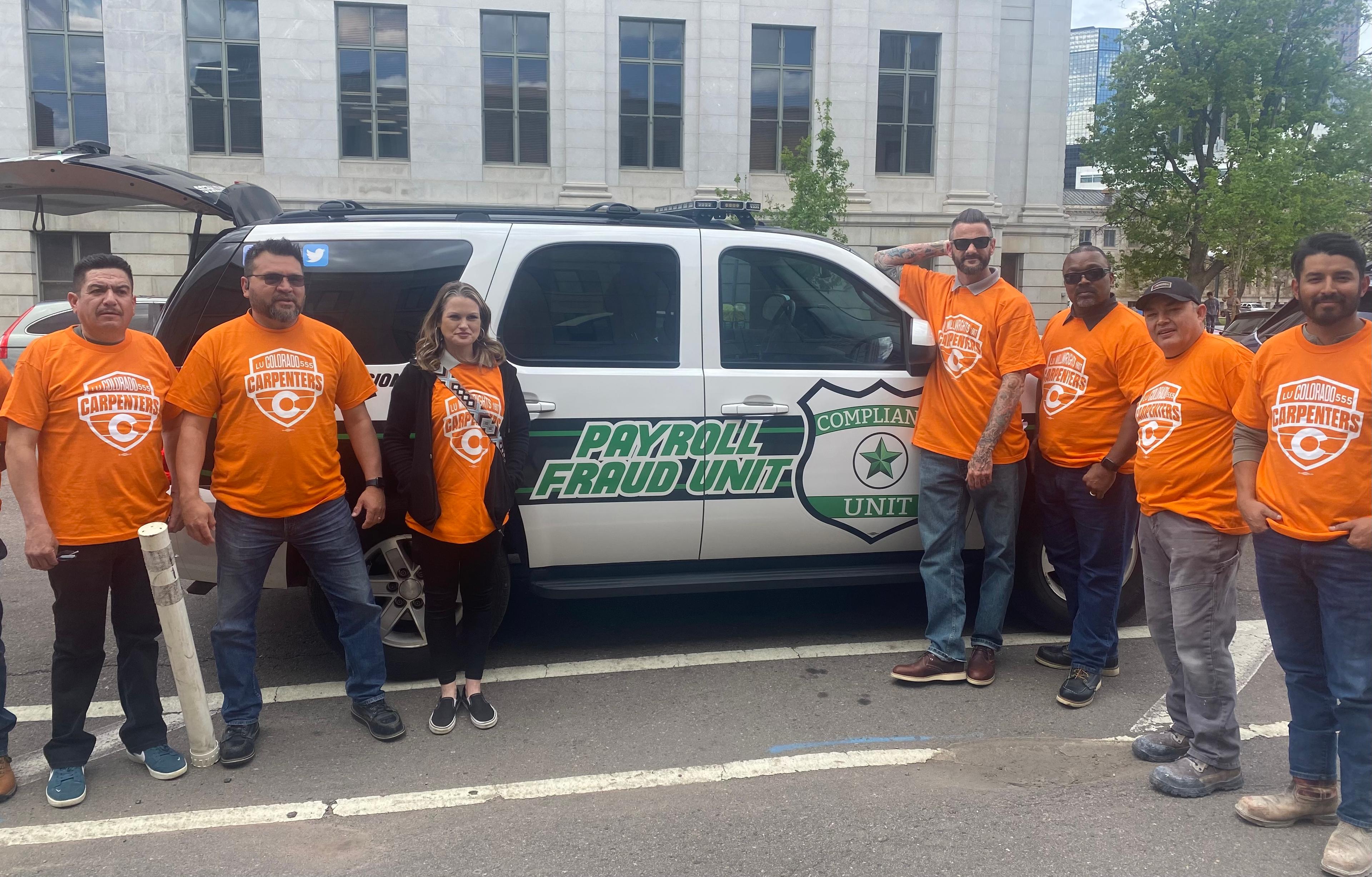Edgar Jauregui spends his days visiting construction sites across Colorado as a representative with the Western States Regional Council of Carpenters. He checks in on workers and makes sure they get paid what they are owed. But often, that’s not the case.
“I walk projects every single day and the whole state of Colorado, and I talk to a bunch of workers every day,” he said. “Just today in Aurora, they told me that there are 16 guys that they haven’t paid.”
In 2023, the city recovered a record $2 million in stolen wages for 3,570 workers — an increase of about 85% over 2022 involving. But labor organizers and city staff say even more money is out there.
On Monday, City Council unanimously passed a bill granting subpoena power to the Denver Auditor’s Office, which will allow staff to more aggressively go after wage theft.
“Wage theft is devastating,” said Councilmember Sarah Parady, who previously represented workers as a lawyer before her election to City Council. She co-sponsored the bill with Councilmembers Kevin Flynn and Amanda Sawyer.
“What we need is for our enforcement agency to be empowered to get whatever information is needed to get to the truth.”

With previous rules, the Auditor’s Office could only issue fines to companies that did not hand over requested documents in a wage theft investigation.
Under that system, businesses could pay the fines rather than cooperate with an investigation.
The new bill passed Monday will allow the office to issue subpoenas for things like payroll records, which could help the city find other victims of wage theft at the same workplace beyond one specific complainant.
The bill will also allow businesses to go before a neutral, third-party mediator if they want to dispute the subpoena—a request from business groups during stakeholder negotiations on the bill.
The city worked in partnership with labor unions and the organization Coloradans for the Common Good on legislation that would target wage theft. In 2023, Council passed a different bill strengthening protections for workers.
“It’s going to really impact a lot of workers who are experiencing wage theft,” said Monica Rodriguez Rafael with Centro de los Trabajadores Colorado, a labor organization and member of Coloradans for the Common Good. “That’s going to be really important for… getting workers to get money into their pockets.”
The bill comes as new immigrants, one of the groups most at risk for wage theft, arrive in Denver looking for work.
Jauregui said that rampant wage theft makes it harder for legal businesses to compete for contracts, because businesses underpaying their workers can offer work at a lower cost. He said new immigrants can be especially at risk.
“We realized it was going to be fresh meat for the wolves,” Jauregui said.
While the subpoena bill for wage theft passed Monday, a second bill giving subpoena power to the Auditor’s Office to audit city agencies and contractors for performance is still in the works. Council had broad consensus on the wage theft portion, but the other bill has faced more resistance over worries about overreach, something Auditor Timothy O’Brien has pushed back against. Subpoena power was granted to the Auditor's Office and then withdrawn by Council in 2021 over similar concerns.
“Having a collaborative tool like this, the Auditor's Office can see faster resolution and payment on behalf of workers,” he said Monday. “I encourage all City Councilmembers to support the same accountability for public dollars as it is today for private business.”












